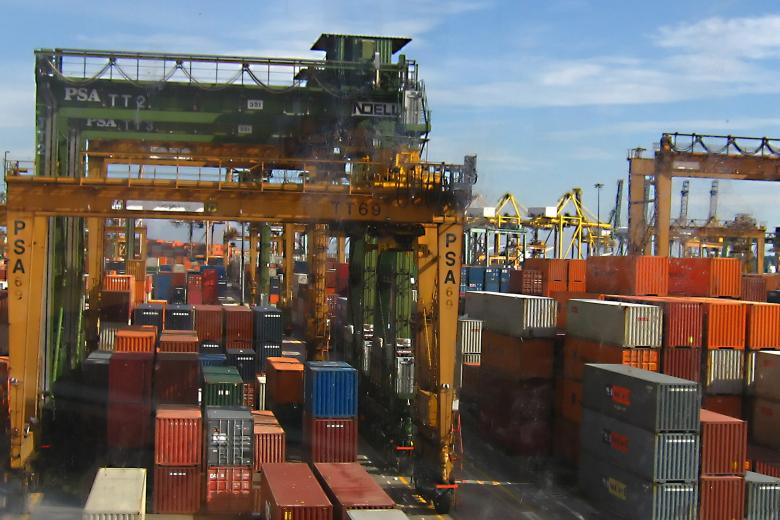Inhoud naast procedure - een les geleerd?
IGIR assistent Dr. Iveta Alexovičová, universitair docent in internationaal economisch recht, faculteit der rechten, Maastricht University, verzorgde op 6 juni een college getiteld "Substance alongside procedure - a lesson learned?". (English text)
The lecture presented the preliminary findings of an eponymous paper-in-progress in which Dr. Alexovičová argues that while a multilateral investment court could be a welcome improvement of the existing investor-state dispute settlement system, the “procedure before substance” approach, which appears to be followed, no longer suffices and constitutes only a partial solution to the legitimacy problem of the existing system of foreign investment protection. Dr. Alexovičová proposes that a reform of the investor-state dispute settlement system must go hand in hand with a reform of substantive rights and obligations of states contained in investment treaties.
Some half century ago, when attempts to conclude a multilateral investment treaty were failing, Aron Broches, the then General Counsel of the World Bank, proposed to put "procedure before substance" and create – what was to become - the International Centre for the Settlement of Investment Disputes (ICSID), leaving substantive protection of foreign investment to bilateral arrangements between individual states.
Now, some 50 years later, the European Union and Canada have launched discussions on the creation of a multilateral investment court which, similarly as Broches, appears to presume that putting procedure before substance will help to restore trust of both the public and policy makers in the existing foreign investment protection system.
In her forthcoming article, Dr. Alexovičová argues that, while Broches' approach might have been the right one at the time, and while a multilateral investment court could be a welcome improvement of the existing investor-state dispute settlement system, this "procedure before substance" approach no longer suffices and constitutes only a partial solution to the legitimacy problem of the existing system of foreign investment protection.
The article instead argues that a reform of the investor-state dispute settlement system must go hand in hand with a reform of substantive rights and obligations of states contained in investment treaties. The latter receives some attention in the new generation of these treaties, but little – if any – regard is paid to hundreds of treaties concluded less recently. This is at odds with the fact that the latter threaten legitimacy of the system not just through their ISDS clauses but also through a missing balance between substantive rights and obligations of states. And they will continue to do so for decades to come due to generous sunset clauses contained in many of them, even if terminated at certain point. The article argues that, alongside a reform of the current investor-state dispute settlement system, substantive provisions of previous generation investment treaties require serious attention too.
In this respect, Dr. Alexovičová suggests that a future multilateral treaty could include provisions amending or clarifying states' obligations under existing treaties and applicable to those treaties as lex posteriori. While chances on reaching an agreement on all substantive provisions may be as slim at present as they were in the past, trends detectable in new generation investment treaties provide sufficient hope that some common grounds can be found. The article proposes an opt-in mechanism that would enable any individual country to agree with all other willing partners on mutually acceptable common grounds, thereby amending existing treaty arrangements to the extent possible, without the need to renegotiate every and each of them.
This proposal is in line with recent experiences from other fora, such as the World Trade Organization and even the European Union, suggesting that the all-of-us-agree-to-all approach might no longer be an appropriate one for reaching international deals. It is the so-called plurilateralism, to use the WTO terminology, (or "multiple bilateralism", to use a perhaps even better fitting expression that once appeared in an article in EUobserver) that might prove more successful in the future. This might be a worthy attempt to improve international investment arrangements that are likely to stay with us for some time to come. Without being guilty of judicial activism, no multilateral investment court, whatever its institutional or procedural set up, would be able to achieve a similar balance of states' rights and obligations under often unbalanced treaty arrangements. Substance must be dealt with alongside procedure if the system is to gain legitimacy and win popular support that appears to be largely lost at present.
Written by Iveta Alexovičová
Published on Law Blogs Maastricht
-
Louboutin's hoge hakken met rode zolen en haar copycats
Christian Louboutin vs Van Haren Schoenen - Het CJEU zal beslissen of de rode kleur op de zolen van Louboutin schoenen een aspect met betrekking tot de vorm van het product vertegenwoordigen. In dit geval zou het niet beschermd zijn. (Engelstalige blog)

-
AARON kan Warhol niet zijn
Op vrijdag 8 september gaf Ana Ramalho op de Faculteit der Rechten een lezing gedurende het PAS Festival. De vraag is of er copyright moet worden toegekend aan kunstmatige intelligentiesystemen die artistiek en literair werk creëren. (English text)

-
Oordeel 2/15 en EU bevoegdheid voor gemeenschappelijke handelspolitiek
Brede ‘EU-only’ handelsverdragen vormen de nieuwe norm van het externe EU handelsbeleid, alleen als zulke verdragen investeringsportefeuilles en investeerder-staatarbitrage regelingen vanuit hun bereik uitsluiten. (English text)

